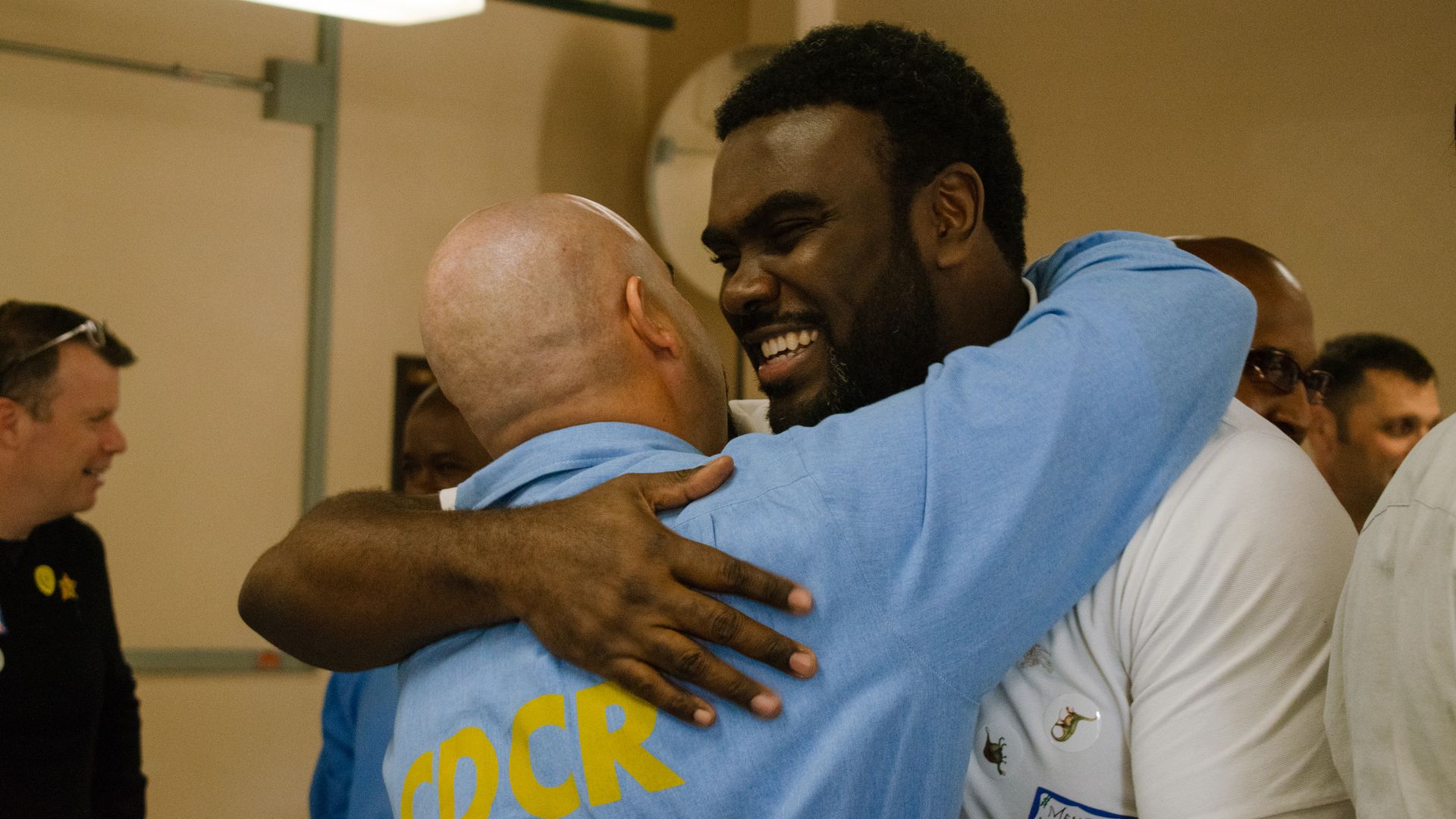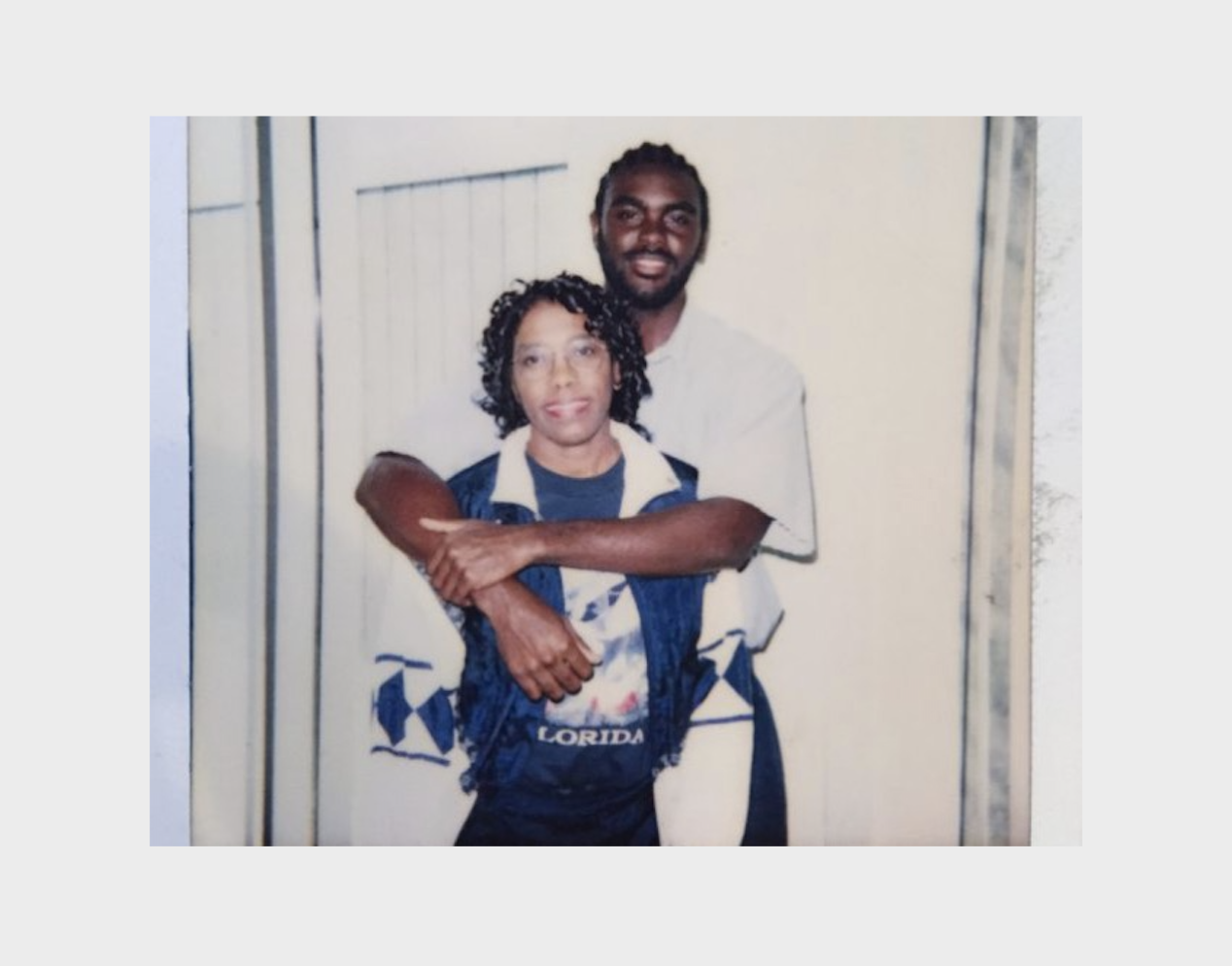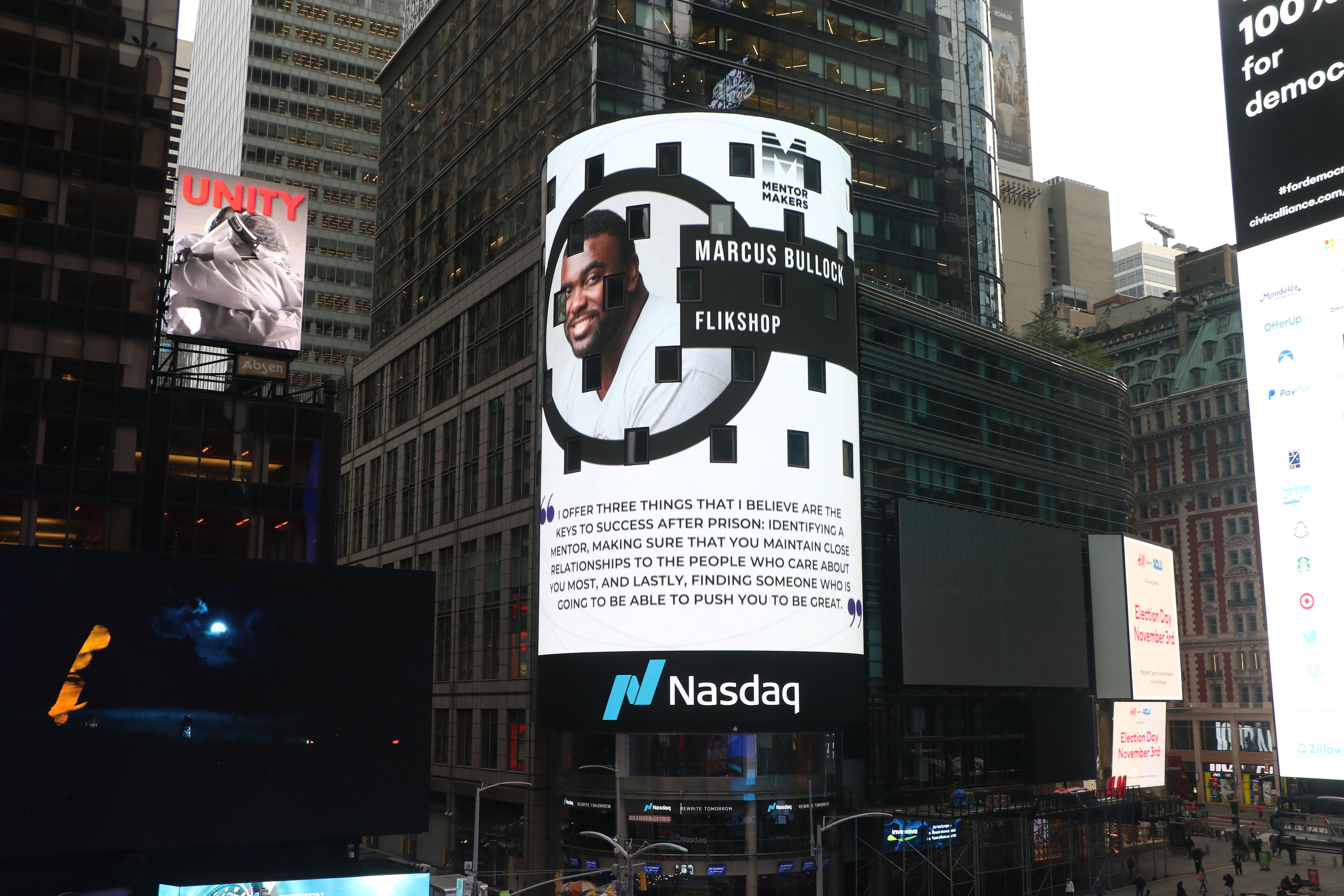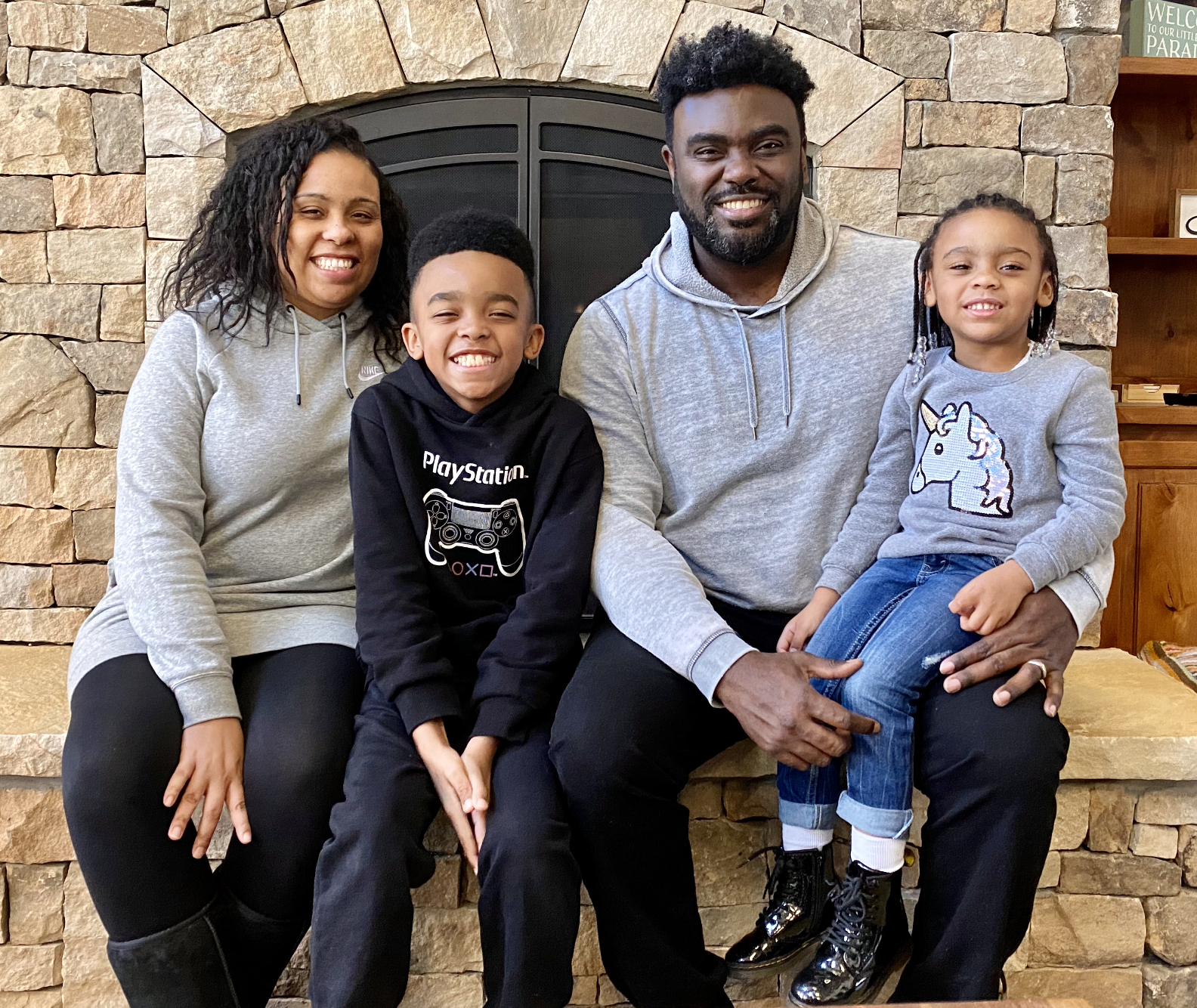D.C. native pushes prison reform on 'Instagram for the incarcerated'
Add Axios as your preferred source to
see more of our stories on Google.

Photo courtesy of Marcus Bullock
Pictures and letters sent from his mom were a lifeline for D.C. native Marcus Bullock while he served eight years at a maximum-security prison for carjacking.
The now well-respected business owner, speaker, and mentor is helping other incarcerated people gain the same kind of support through his prison postcard tech company and app, Flikshop.
- “My mom was Flikshop before Flikshop. My mom was Instagram before Instagram,” says Bullock, whose sentence started when he was just 15.
Why it matters: Flikshop, often called prison's Instagram, aims to connect incarcerated people to the outside world in order to instill a sense of hope and motivation for life after prison. Bullock believes that empowering incarcerated people can keep them from being reincarcerated after their release.
- Recidivism is a major issue in the U.S. Within three years of being released, two out of every three former incarcerated people are re-arrested, and over half are sent to prison again, according to the Harvard Political Review.
“The only reason I’m sitting here today… is because my mom wrote me letters when I was in prison. She saved my life. She gave me the window to the world,” Bullock says. “(She) gave me the audacity to believe that I could be something incredible when I came home.”

How it works: Flikshop is available in hundreds of facilities across the country. Users are able through the app to upload and send postcards to loved ones behind bars.
- Postcards can be sent for starting around a dollar, but families can receive donated Flikshop credits through the Flikshop Angels program.
- Grammy winner John Legend, whose mother was incarcerated when he was a teen, became the first Flikshop Angel when he partnered with the app in 2016.

Zoom out: In 2015 Bullock founded the Flikshop School of Business, which gives its formerly incarcerated scholars (and others who have an incarcerated family member) entrepreneurship and coding skills. Through free space provided by WeWork, the school is able to meet at the co-working space.
- “There’s tons of brilliance that live in these cells. I’m not a unicorn. I just had access and social capital and now resources,” Bullock tells Axios.
- Warren Allen, a Flikshop scholar, says the program gave him critical business skills after serving 21 years. He’s now working to end life imprisonment through The Sentencing Project.
- “I received a second look and I would want that for the next individual," Allen says.

Be smart: Despite their success, both Bullock, Allen, and many others who’ve been charged with felonies are still impacted by their convictions years after their release. Bullock says he’s still not able to chaperone his kids’ field trips, live in certain neighborhoods, or even be a realtor (after paying for and going through classes) because he has to check the box that says he’s committed a felony.
What's next: Bullock is now working to add additional corporate partners to support his push for widespread prison reform.
“I feel so grateful that I'm the one to be able to help advance this kind of technology," Bullock says. "But also to be able to begin to erase some of the stigma that comes along with having a felony conviction."
Editor's note: This story has been updated to clarify that the Flikshop School of Business receives free space from WeWork, but is not sponsored by WeWork.
